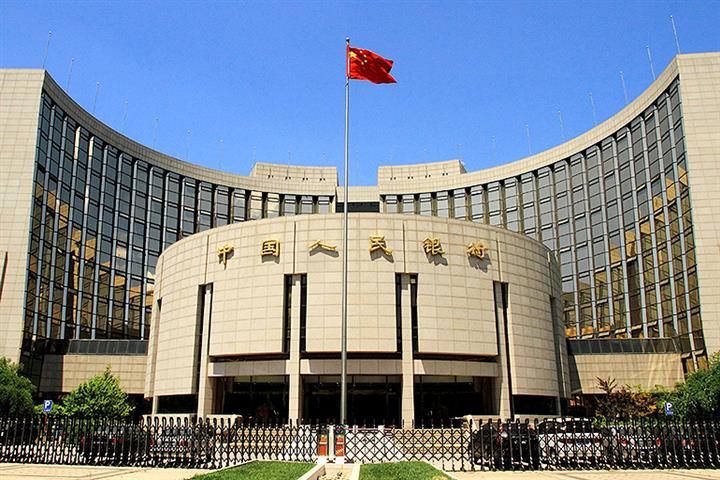 PBOC’s Rare 14-Day Reverse Repos Are to Boost Liquidity Not Hike Rates, Analysts Say
PBOC’s Rare 14-Day Reverse Repos Are to Boost Liquidity Not Hike Rates, Analysts Say(Yicai Global) Aug. 27 -- China's central bank has taken the unusual measure of conducting 14-day reverse repurchase agreements for three straight trading days from Aug. 21 giving rise to concerns that this might lead to an interest rate hike.
The People's Bank of China seldom conducts 14-day reverse repos after the 25th day of the last month in a quarter, Ming Ming, deputy director of the CITIC Securities Research Institute, told Yicai Global. "It has broken the rules of its operations since the third quarter of 2018 and aroused market speculation," he added.
However, while 14-day reverse repos have a higher interest rate than the more commonly used seven-day tool, it is premature to interpret this as a precursor to higher rates, many analysts said. The issuance of government bonds and slower fiscal expenditure this month have led to a huge liquidity gap in the market.
The financial strain is more than during the entire post-Covid-19 period, Ming said. The central bank has stepped up its liquidity injection into the market through seven-day and 14-day reverse repos to supplement liquidity and stabilize market capital, he added.
"The PBOC has no reason to tighten monetary policy now in the way that it did during the fourth quarter of 2016 when it needed to deleverage and prevent idle funds," Ming said.
"We can wait and see the duration and scale of the central bank's 14-day reverse repo drive," said Qu Qing, chief economist at Jianghai Securities. "If the duration is short and the scale is large, we do not need to worry too much about the possibility of the central bank changing monetary policy," he added.
The bond market has weakened significantly since the PBOC started conducting the 14-day reverse repos. Treasury bond futures fell at closing yesterday. The prices of one-year, five-year and 10-year futures contracts have all dropped to their lowest levels since the end of last year.
Reverse repo agreements are primary tools financial institutions use to provide temporary lending facilities to fund ongoing operations, where a buyer undertakes to temporarily buy a basket of securities for a fixed period and to sell them back at a slightly higher price.
Editors: Tang Shihua, Kim Taylor